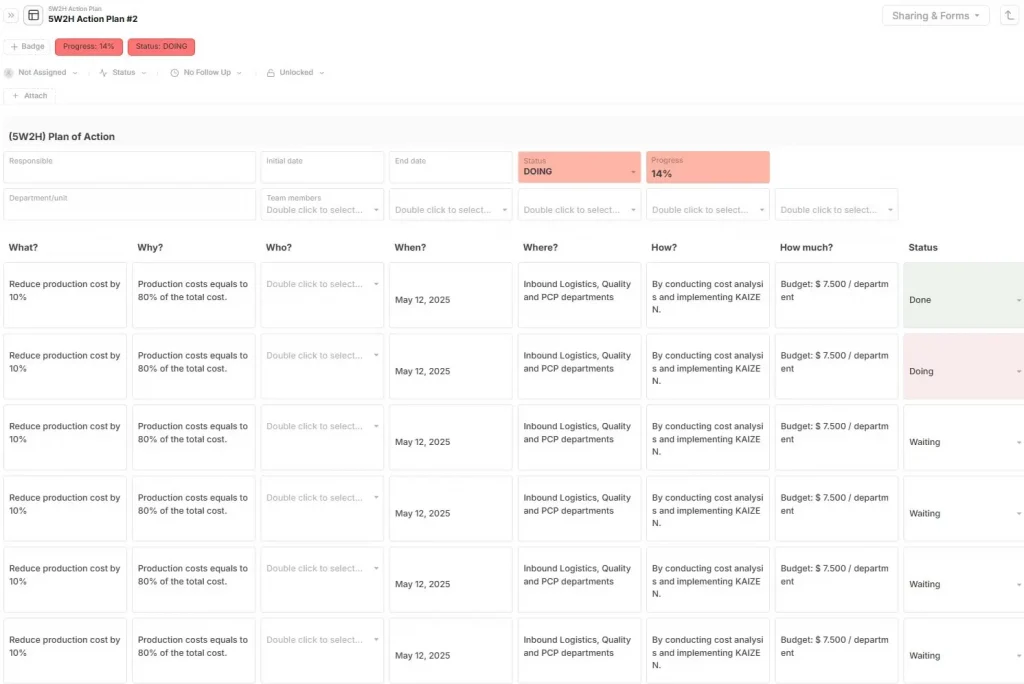ERP systems are powerful allies, but they’re not always easygoing ones. Odoo, with its modular setup and open-source appeal, has earned its place in the spotlight. Still, as businesses grow, many start to feel the friction: rising support costs, tricky upgrades, and a blurry line between what’s community-driven and what’s enterprise-only.
If you’re on the hunt for Odoo alternatives, you’re in good company. In this guide, we unpack the common reasons teams start looking elsewhere, spotlighting standout contenders.
Here, data control, automation, and transparency come standard. No surprises. Just tools that work.
Why Look Beyond Odoo?
Odoo offers flexibility, but it often comes wrapped in complexity. As teams grow, they start noticing friction that slows them down.
Besides, many ERPs are clunky, you pay for features you don’t use, and they’re rigid, which means you can’t adapt them to fit your business needs.
From upgrade headaches to support gaps, here’s what users are reporting:
- Implementation overhead: Getting started with Odoo often means bringing in developers and paying for custom setups.
- Upgrade disruptions: Updates are frequent, but not always smooth. What should be a routine improvement can turn into a workflow blocker.
- Performance limitations: As more data and users are added, the system can start to drag.
- Support uncertainty: The community edition relies on forums and self-help. Enterprise support is available, but pricing can catch teams off guard.
Odoo might have been the right tool at one point, but that doesn’t mean it’s still the best fit for your company. Exploring Odoo alternatives is all about choosing to grow smarter.

Top Odoo Alternatives to Explore
Switching from Odoo can feel like choosing between siblings; each ERP has shared roots but offers its own strengths. The tables below break down five compelling alternatives with their standout features and how they echo key aspects of Odoo.
Alternative #5: Oracle NetSuite
NetSuite is a cloud-native ERP crafted for global operations covering finance, CRM, supply chain, e-commerce, and professional services.
| NetSuite | |
| Key features | Similarities to Odoo |
| – Advanced financials: multicurrency, revenue recognition, and global consolidation. – Real-time dashboards and analytics leveraging embedded BI. – SuiteCommerce for B2B/B2C e-commerce integrated with backend processes. – Compliance and global tax engine. | – Comprehensive ERP modules. – Centralized data with live insights. – All-in-one modular structure. – International-ready options. |
What Sets it Apart
This tool is built for scale, ideal for companies expanding across countries that need robust reporting and a mature partner ecosystem.
Alternative #4: Microsoft Dynamics 365 Business Central
Business Central is an ERP and CRM tightly woven into the Microsoft 365 suite, perfect for teams already in the MS ecosystem.
| Business Central | |
| Key features | Similarities to Odoo |
| – Finance, inventory, supply chain, and HR. – Excel and Teams integration. – Built-in Power BI reporting. – Strong vendor and service management features. | – Modular ERP approach. – Familiar Microsoft-style UX. – Dashboards and analytics. – Covers core business functions. |
What Sets it Apart
If your team lives in Outlook and Excel, Business Central offers a unified experience with no jumping between apps required.
Alternative #3: ERPNext
ERPNext is a fully open-source ERP covering accounting, stock, manufacturing, CRM, HR, projects, and more.
| ERPNext | |
| Key features | Similarities to Odoo |
| – Zero-cost licensing with no paywalls. – Built-in inventory, accounting, manufacturing, and project management. – Low-code customizations with the Frappe framework. – Strong community and active development. | – Open-source modular ERP. – Full ERP coverage. – Adjustable modules. – Community-driven enhancements. |
What Sets it Apart
It works for growth-minded teams that want full ERP power without licensing fees, plus the freedom to tweak code as needed.
Alternative #2: Zoho One
Zoho One is a bundled suite of over 40 business apps, from CRM to finance, HR, and collaboration.
| Zoho One | |
| Key features | Similarities to Odoo |
| – Drag-and-drop low-code workflow building. – Centralized dashboards across apps. – Integrated email, chat, social media, and phone support. | – Suite-style business tools. – Built-in automation. – Aggregated reporting. – Omni-channel capabilities. |
What Sets it Apart
Zoho One lets you pick and mix apps with minimal setup, which is ideal for teams that want functionality in a single, connected experience.
Alternative #1: Acumatica
Acumatica is a cloud ERP engineered for midmarket firms in manufacturing, distribution, and services, all with usage-based pricing.
| Acumatica | |
| Key features | Similarities to Odoo |
| -Manufacturing, distribution, and project accounting modules. – Role-based dashboards and automation. – Cloud-first deployment. – Usage-based licensing (not per seat). | – Industry-specific ERP. – Modular and customizable. – Flexible architecture. – Scales with business size. |
What Sets it Apart
If you want granular cost control and ERP made for your industry, Acumatica delivers without forcing unnecessary seats.
How AnyDB Combines ERP-Style Flexibility Without the ERP Headache
AnyDB is a no-code platform that lets you shape your business workflows, onboarding, and financial views, all from one clean, unified place.
| AnyDB | |
| Key features | Similarities to Odoo |
| – Modular system that scales with you. – Transparent pricing, no surprise fees. – Built-in templates for fast setup. – Visual pipelines and task flows. – Relational database with live data sync. – Custom views for each team. – Real-time triggers and no-code automation. – Cell-level permissions and granular security. – Knowledge base wiki feature. – Scalable pricing without hidden fees. – Integrated data management and workflow automation. | – Covers CRM, inventory, finance, and more. – Offers a suite of business applications. – Contact, lead, and deal management. -Contact profiles and tags. – Customizable sales pipelines. – Email subscription workflows and team collaboration. – Marketing and sales automation. – Dashboard and report customization. – Tailored to your business needs. |
What Sets It Apart
You’ll notice the simplicity, pricing clarity, and workflow-ready setup right away.

Access AnyDB’s Free 5W2H Action Plan (ERP).
Finding the Best ERP Fit for Your Business
Choosing the right ERP or business platform is all about finding a platform that fits your team’s pace, supports your growth, and keeps costs predictable.
AnyDB offers a smarter way forward. It’s a no-code, modular platform built for teams that want control without the ERP baggage.
You can shape your operations, CRM, and financial workflows in one place. No modules to piece together. No need to call in a dev team for every change.
You’re free to explore. Start with a template. Run a quick pilot. See how it feels.
What is AnyDB?
AnyDB is a unified, customizable data store designed to streamline and empower your entire organization. Effortlessly store, organize, and share custom business data to drive both internal and external operations across teams. Think of it as spreadsheets on steroids.Perfect for Sales, Marketing, Operations, HR, and beyond. Discover AnyDB





